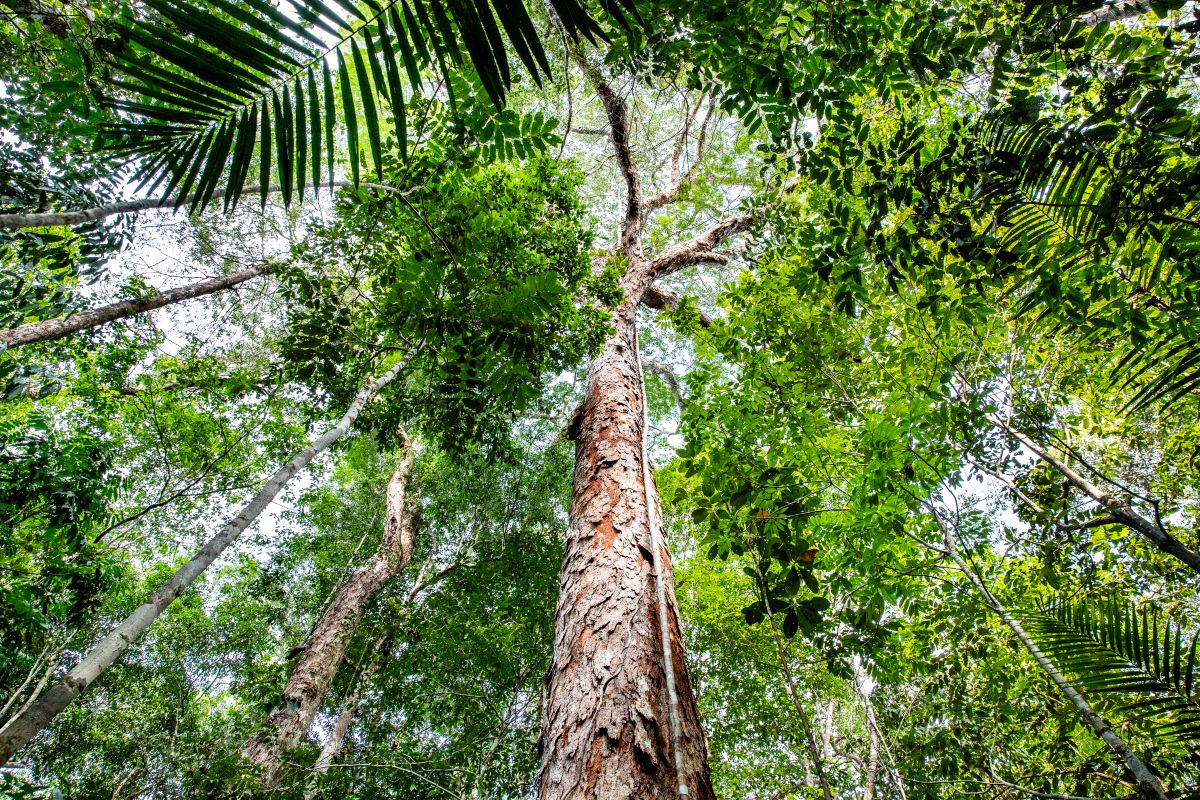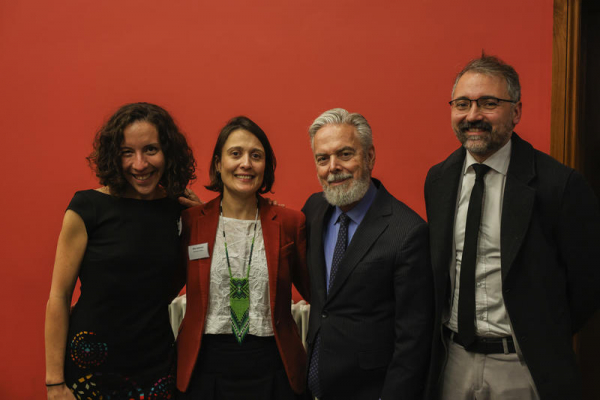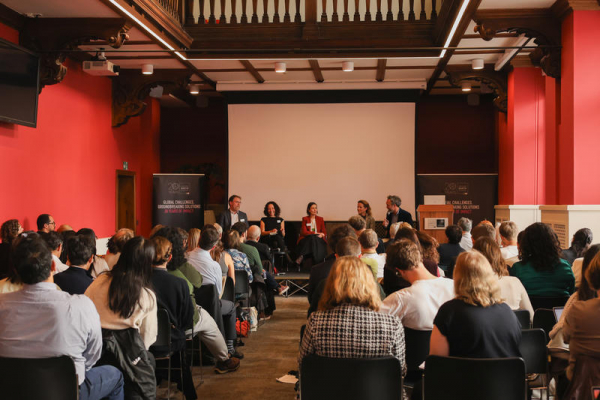Tropical Forest Forever Facility launched at COP30 Belém
COP30 Belém saw the launch of the Tropical Forest Forever Facility - an ambitious new investment mechanism designed to channel long-term public and private funding to keep tropical forests standing. The TFFF could mark a paradigm shift for climate finance, strengthening agency for tropical forest nations and the Indigenous Peoples and local communities leading tropical forest protection. November 7, 2025
Yesterday at the COP30 leaders summit in Belém, Brazil, world leaders gathered to witness the formal launch of the Tropical Forest Forever Facility (TFFF) – a new investment mechanism designed to deliver predictable, large-scale, long-term funding to countries that conserve and restore tropical forests.
Opening the proceedings, President Lula da Silva highlighted its significance:
“The Tropical Forest Forever Facility will be one of the main tangible outcomes in the spirit of COP30 implementation. It is symbolic that the celebration of its birth is taking place here in Belém,”
The TFFF aims to pay developing tropical-forest nations roughly US$4 per hectare of forest area maintained or enhanced, with at least 20% of funding channelled directly to Indigenous Peoples and local communities, recognising their vital stewardship role.
The Facility is framed as an investment mechanism which seeks to address the market failure that forests are currently worth more cut down than standing.
Insights on Forest Protection & the TFFF: Pre-COP30 dialogue with the Embassy of Brazil and the University of Oxford
In the lead up to COP30, we hosted a high-level dialogue in partnership with the Embassy of Brazil to the United Kingdom to discuss: “Forests and the Future: Brazil’s Path to Climate Solutions”. The event brought together leading experts from academia, government, and civil society including Ambassador Antonio Patriota, Dr Aline Soterroni, Dr Erika Berenguer, Prof Nathalie Seddon, Prof Jos Barlow, Prof Nicola Ranger and representatives from the UK Foreign, Commonwealth and Development Office and Trase.
Discussions focussed on how Brazil is driving efforts to align science, policy, and finance to protect tropical forests, culminating in the design of the TFFF.
Ambassador Antonio Patriota described COP30 as an opportunity for Brazil to demonstrate leadership in tackling its main source of emissions – deforestation – and highlighted the TFFF as “an innovative mechanism that would channel resources for the populations that live in tropical forests”, but warned that international cooperation is vital for the TFFF’s success.
Three key messages emerged from the discussions:
- Protecting tropical forests delivers simultaneously for climate mitigation, biodiversity conservation and socio-economic resilience.
- Financing mechanisms like TFFF need to be predictable, large-scale and designed around the realities of forest-governance, community rights and rigorous monitoring.
- The TFFF mechanism marks a step towards strengthening the agency of tropical forest countries and the people within them who lead protection of tropical forests. As Ambassador Antonio Patriota put it:
“We’re not only waiting for the developed North or the more powerful private interests in the world to contribute. We’re actually taking matters into our own hands and doing our part to the extent possible.”

Erika Berenguer, Aline Soterroni, Ambassador Antonio Patriota, and Fernando Bastos at the pre-COP30 dialogue

Photos by Monica Gujral, Department of Biology
Read more about the pre-COP30 dialogue here.
UK Government decides to opt-out of the TFFF
The TFFF seeks to raise US$ 25bn in public sponsor capital from governments and public institutions, leveraging a further US$ 100bn coming from private finance to build a target endowment fund of US$ 125bn.
Despite having helped design the fund, the UK government announced this week that it will not contribute to the TFFF – a decision met with considerable disappointment and concern, particularly in the context of the Prime Minister’s stated ambition that the UK will ‘lead on tackling the climate crisis.’
The TFFF was also nominated as a finalist for Prince William’s Earthshot prize, recognising it as ‘the most ambitious forest protection fund in history.’
Several countries have already committed sponsor funding, including Norway (US$ 3bn), Brazil (US$ 1bn), Indonesia (US$ 1bn), Portugal (US$ 1 million) and France (up to 500 million Euros), with further commitments expected during COP30.
Framing the TFFF: Tropical Forests as Systemically Important Natural Systems (SINS)
A new blog by NbSI PhD Researcher Emma O’Donnell and the LSE’s Prof Nicola Ranger (Earth Capital Nexus at the Grantham Research Institute on Climate Change and the Environment) explains why tropical forests should be viewed not just as ecosystem assets, but as “systemically important natural systems” (SINS), essential to global economic security and financial stability – analogous to the globally systemically important banks (G-SIBs) in the global financial architecture.
Framing tropical forests as SINS could generate a paradigm shift through which TFFF becomes more than a climate or biodiversity initiative – it becomes ‘systemic risk management’ for the financial system, global wellbeing and planet. Tropical forests are ‘too big to fail’ and TFFF has potential to act as a catalyst for a new global architecture for financing nature and resilience if implemented alongside other forest financing mechanisms.
Read the full blog here.
Looking Ahead for COP30
As the world watches the negotiations unfold in Belém, it is vital that forests and people remain at the heart of climate action.
Professor Nathalie Seddon, Founding Director of the NbSI, and Dr Aline Soterroni, Research Fellow and Deputy Head of the University of Oxford Delegation, are attending COP30, advocating for strengthened synergies between biodiversity and climate policy.
The Nature-based Solutions Initiative (NbSI) will be co-hosting an official side event on 11 November:
“From Trade-offs to Synergies: Aligning Climate and Biodiversity Policies”
13:15—14:45 (GMT-3), Side Event Room 1 (Blue Zone)
For further updates from COP30, follow the NbSI LinkedIn and Bluesky.
Written by Lila Stewart-Roberts and Emma O’Donnell
